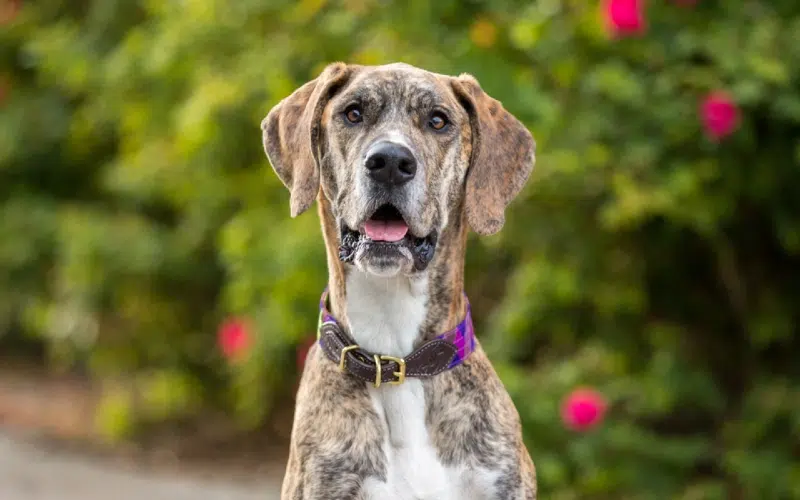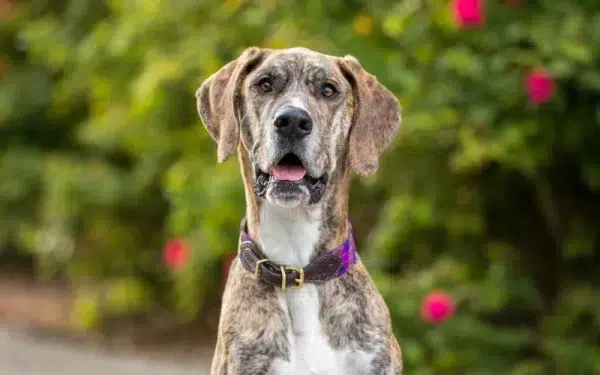Great Danes are intelligent, loyal, and gentle giants that make excellent family pets. However, they can be a handful for first-time dog owners.
Great Danes require plenty of exercise and mental stimulation to stay healthy and happy. They also need proper socialization and stimulation. First-time owners may be unable to provide the necessary amount of exercise and mental stimulation, which can lead to behavioral issues.
Great Danes also need a great deal of space. They are pretty large and need plenty of room to move around. They may become frustrated and act out if you do not have adequate space for them. That being said, Great Danes can still be a good choice for first-time owners as long as they can socialize, train, and provide a stimulating environment for the dog.

What Makes Great Danes Good for First-Time Owners?
Great Danes’ larger size may make them seem intimidating, but they are actually gentle giants that make fine companions for first-time dog owners. These attributes make the breed a good choice for first-time owners:
- Intelligence: Great Danes are known for their intelligence, making them relatively easy to train. That’s good news for first-time owners who might not be familiar with the more advanced or lengthy training processes associated with some other breeds.
- Eager to Please: Great Danes love making their owners happy and are eager to please. So, they’ll do anything if they believe it makes you happy. It’s up to you to use this trait wisely and ensure that your Great Dane develops into a well-behaved, obedient dog.
- Docile Nature: Although big, Great Danes are usually very docile and even-tempered. They don’t bark excessively or become destructive when left alone.
- Low Maintenance: Compared to some other dogs, such as certain terriers, Great Danes are relatively low maintenance when it comes to grooming. They don’t need a lot of brushing or bathing. Plus, they sleep a lot, so you won’t have to spend much time with them daily.
- Family Friendly: Great Danes make wonderful family pets, as they’re patient and gentle around children and other pets. They’ll be loyal to their owners and want nothing more than to be around them.
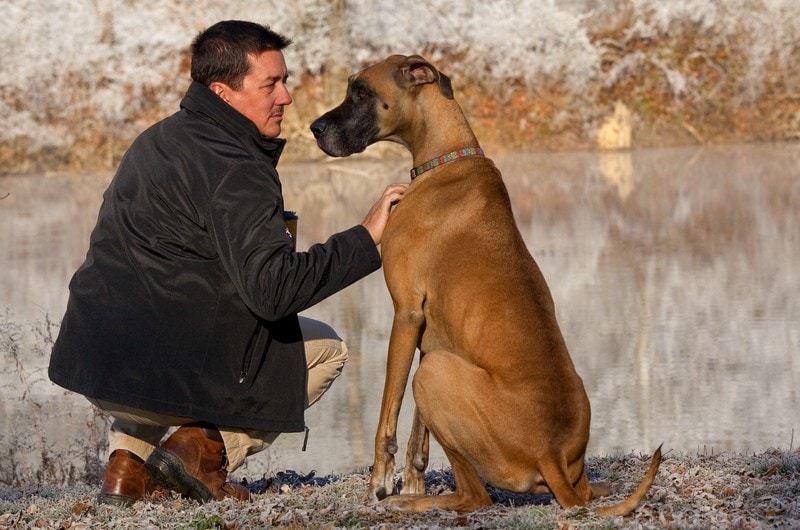
Why Great Danes May Not Be Good for First-Time Owners
Although there are many reasons for Great Danes to make good companions for first-time dog owners, there are also some reasons why they might not be the best choice.
- Large Size: Great Danes are a large breed and may be too big for first-time owners to handle. Their size can lead to problems with walking, going up and down stairs, socializing, and training.
- Massive Appetite: Great Danes have a massive appetite and can consume up to 10 cups of dry food daily. First-time owners must be prepared to provide a steady diet of high-quality food to keep their Great Dane healthy.
- High Exercise Requirements: A Great Dane should get two hours of physical activity per day, which can be difficult for first-time owners who may not have the time or resources to provide enough exercise. Without adequate activity, the breed tends to get rambunctious. It results in destructive behavior, such as chewing furniture and digging in the yard.
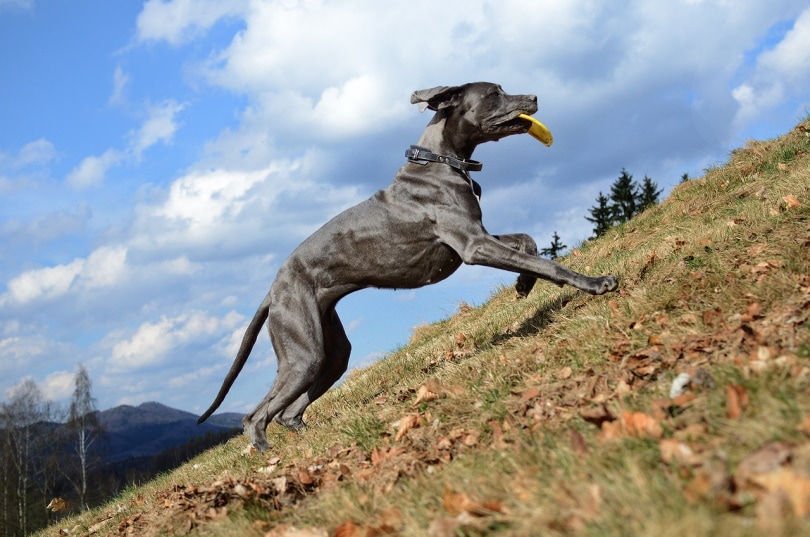
Are Great Danes Easy to House Train?
Great Danes are among dog species that are relatively easier to potty train. First, they’re intelligent and learn quickly. Second, they have large bladders, so they can hold their urge for longer. Finally, they’re loyal and eager to please their master. Therefore, they will do all they can to get your praise.
Can Great Danes Be Left Alone All Day?
As a first-time dog owner, you must have a plan for your Great Dane if you need to leave them for extended periods to go to work every day. Since they’re considered couch potatoes, Great Danes are less active than some smaller breeds.
As long as they get their 2 hours of daily activity, they can be left alone for most of the day. However, if they’re not trained properly, they can be destructive in your absence.

How to Care for a Great Dane
If you’ve planned to get a Great Dane as your first dog, you should know about their grooming, health, and nutrition needs. Here are some things to keep in mind:
Health Requirements
Gastric dilatation-volvulus (GDV), commonly known as bloat, kills most Great Danes. Being an owner, you should know the symptoms and treatments of this life-threatening condition. Common symptoms of GDV include restlessness, excessive drooling, and abdominal pain. Take your dog for regular check-ups and vaccinations to protect them from parasites and infectious diseases.
Great Danes are prone to medical issues, such as hip dysplasia, elbow dysplasia, and thyroid problems. You can ask your vet to check for these issues during regular visits.
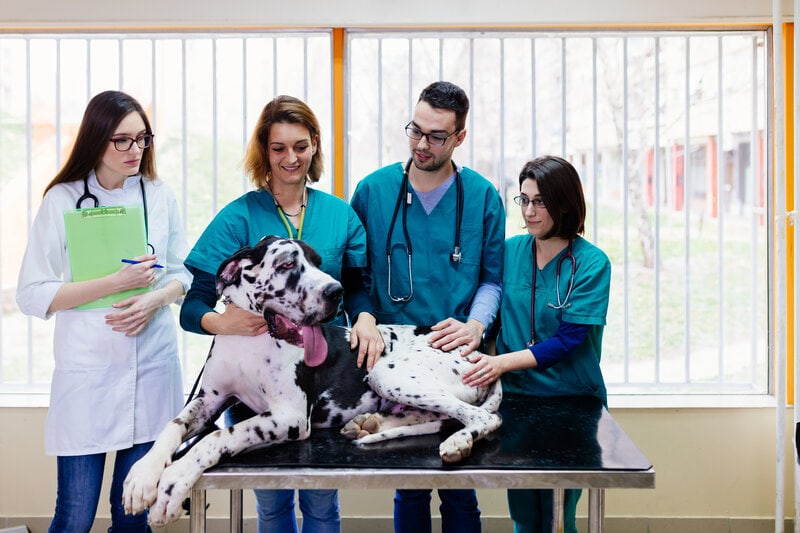
Grooming
Great Danes do not shed much of their coat during the year. However, due to their big size, even less frequent shedding contains a significant amount of hair. You should brush their hair weekly with a hound glove or rubber grooming mitt. It will minimize shedding.
Make sure to trim their nails regularly. Great Danes don’t need frequent bathing, and you should only bathe them occasionally unless they become particularly dirty or smelly.
Nutrition
Great Danes need a high-quality dog food that contains protein, calcium, and healthy fats. It is essential to feed your Dane at least two meals per day and avoid overfeeding.
The food should be easily digestible and appropriate for their size and activity level. Ask your vet to recommend a good diet for your Great Dane.
Training
Puppy training classes and socialization help your Great Dane learn basic commands. Training should be started early and continued as long as possible to ensure a well-behaved dog.
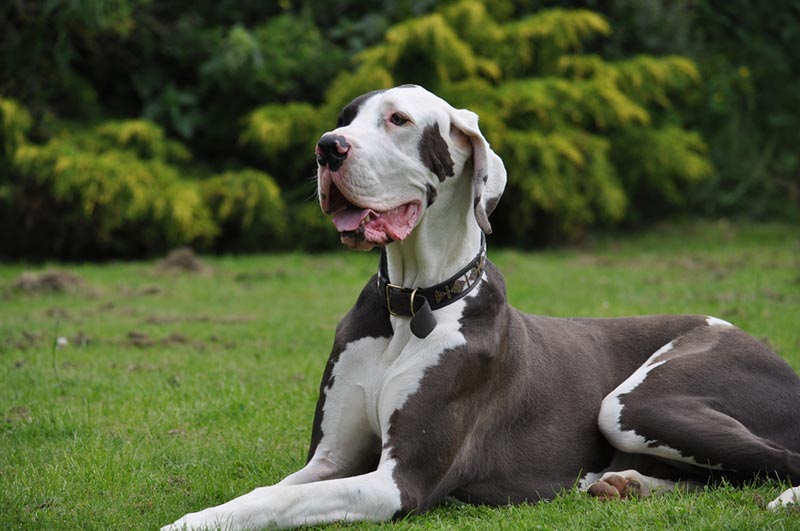
Do Great Danes Get Along Well With Other Pets?
If you already have a cat or other small pet in your home, a Great Dane will usually get along with them fine. But there’s still a risk of aggression and intimidation, considering the breed’s size. Proper training and socializing will determine how well your Great Dane interacts with other animals.
The breed tends to get jealous when their owners spend too much time with someone else. Make sure your Great Dane receives the same attention, love, and care as your other pets.
Introducing a Great Dane to other animals should be done slowly and carefully. Supervise their initial interactions until you are entirely sure that they can be together without any issues.

Final Thoughts
Whether a Great Dane is suitable for first-time owners depends on what you’re looking for in a dog. A Great Dane is the best option if you need an intelligent, well-mannered, and even-tempered companion, and budget or space is not a concern.
Meanwhile, if you live in a small apartment and don’t have the resources to provide for a large dog with excessive nutritional needs, it’s wise to look for a smaller, less demanding breed. However, if you are a committed and experienced pet owner willing to take on the challenge of owning a Great Dane, you may have just found your perfect match.
Featured Image Credit: Tara Lynn and Co, Shutterstock

